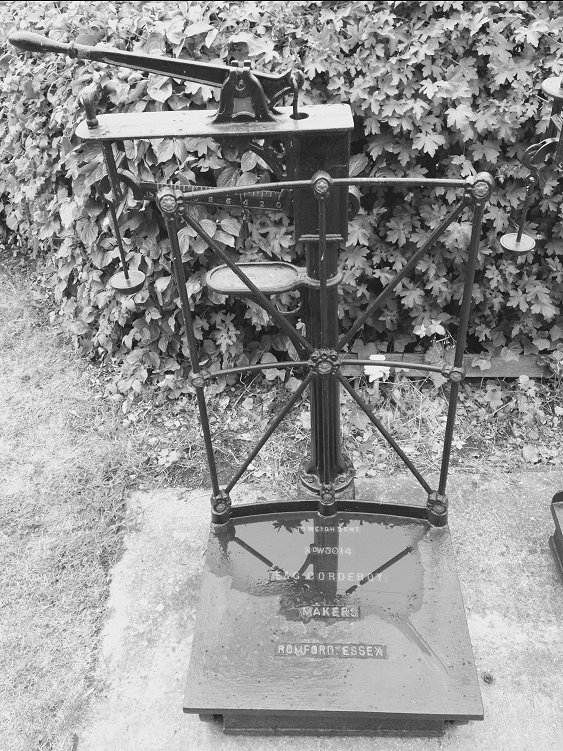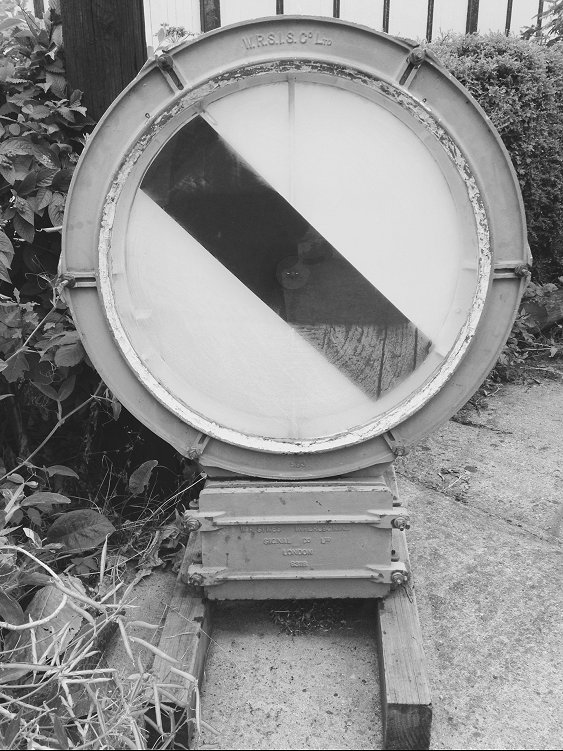|
|
|
|
|
|
|
|
|
|

St Albans South signalbox is a typical Midland Railway structure that is now preserved. Date August 2018. Photo courtesy Rosie Bayliff. |

The plaque on St Albans South signalbox reads: ST ALBANS SOUTH SIGNAL BOX This signal box was built by the Midland Railway in 1892 and closed in 1980. It has been restored by the St Albans Signalbox Preservation Trust and opened to the public in 2009. The signal box is listed Grade II and stands in a conservation area. Date August 2018. Photo courtesy Rosie Bayliff. |

Preserved items at St Albans signalbox. Date August 2018. Photo courtesy Rosie Bayliff. |

Preserved weighing machines at St Albans signalbox. These would typically found in railway goods yards and on station platforms. The maker's lettering on the left-hand machine reads: TO WEIGH 3 CWT NoW3914 E & G CORDEROY MAKERS ROMFORD. ESSEX. The right-hand machine weigh plate reads: TO WEIGH 4 CWT W & T AVERY LTD MAKERS LONDON & BIRMINGHAM Date August 2018. Photo courtesy Rosie Bayliff. |
 Preserved weighing machine at St Albans signalbox. The maker's lettering reads: TO WEIGH 3 CWT NoW3914 E & G CORDEROY MAKERS ROMFORD. ESSEX. Date August 2018. Photo courtesy Rosie Bayliff. |

A repeater signal preserved at St Albans. These were used where visibility was limited, such as on a bend where there was a danger that without this advance warning a train might not see a signal at "danger until it was too late to stop. Date August 2018. Photo courtesy Rosie Bayliff. |

A preserved Midland Railway wooden post lower quadrant home signal. This example has a pressed steel signal arm, whereas earlier signal arms were made of wood. The "White Diamond" on the signal post indicates that the track which the approaching train is using is fitted with a track circuit, which indicates to the signalman there is a train on the line. Unfortunately this was found necessary following crashes where a signalman forgot about a train standing at a signal and set the signals clear for a subsequent train. An advantage of the track circuit for the loco crew was that they could safely remain with their loco, instead of walking to the signalbox to report their train was standing a signal (in accordance with Rule 55 in the rule book) Date August 2018. Photo courtesy Rosie Bayliff. |
|
|